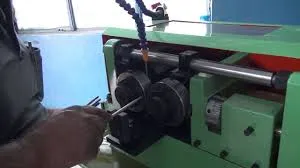
-
 Afrikaans
Afrikaans -
 Albanian
Albanian -
 Amharic
Amharic -
 Arabic
Arabic -
 Armenian
Armenian -
 Azerbaijani
Azerbaijani -
 Basque
Basque -
 Belarusian
Belarusian -
 Bengali
Bengali -
 Bosnian
Bosnian -
 Bulgarian
Bulgarian -
 Catalan
Catalan -
 Cebuano
Cebuano -
 Corsican
Corsican -
 Croatian
Croatian -
 Czech
Czech -
 Danish
Danish -
 Dutch
Dutch -
 English
English -
 Esperanto
Esperanto -
 Estonian
Estonian -
 Finnish
Finnish -
 French
French -
 Frisian
Frisian -
 Galician
Galician -
 Georgian
Georgian -
 German
German -
 Greek
Greek -
 Gujarati
Gujarati -
 Haitian Creole
Haitian Creole -
 hausa
hausa -
 hawaiian
hawaiian -
 Hebrew
Hebrew -
 Hindi
Hindi -
 Miao
Miao -
 Hungarian
Hungarian -
 Icelandic
Icelandic -
 igbo
igbo -
 Indonesian
Indonesian -
 irish
irish -
 Italian
Italian -
 Japanese
Japanese -
 Javanese
Javanese -
 Kannada
Kannada -
 kazakh
kazakh -
 Khmer
Khmer -
 Rwandese
Rwandese -
 Korean
Korean -
 Kurdish
Kurdish -
 Kyrgyz
Kyrgyz -
 Lao
Lao -
 Latin
Latin -
 Latvian
Latvian -
 Lithuanian
Lithuanian -
 Luxembourgish
Luxembourgish -
 Macedonian
Macedonian -
 Malgashi
Malgashi -
 Malay
Malay -
 Malayalam
Malayalam -
 Maltese
Maltese -
 Maori
Maori -
 Marathi
Marathi -
 Mongolian
Mongolian -
 Myanmar
Myanmar -
 Nepali
Nepali -
 Norwegian
Norwegian -
 Norwegian
Norwegian -
 Occitan
Occitan -
 Pashto
Pashto -
 Persian
Persian -
 Polish
Polish -
 Portuguese
Portuguese -
 Punjabi
Punjabi -
 Romanian
Romanian -
 Russian
Russian -
 Samoan
Samoan -
 Scottish Gaelic
Scottish Gaelic -
 Serbian
Serbian -
 Sesotho
Sesotho -
 Shona
Shona -
 Sindhi
Sindhi -
 Sinhala
Sinhala -
 Slovak
Slovak -
 Slovenian
Slovenian -
 Somali
Somali -
 Spanish
Spanish -
 Sundanese
Sundanese -
 Swahili
Swahili -
 Swedish
Swedish -
 Tagalog
Tagalog -
 Tajik
Tajik -
 Tamil
Tamil -
 Tatar
Tatar -
 Telugu
Telugu -
 Thai
Thai -
 Turkish
Turkish -
 Turkmen
Turkmen -
 Ukrainian
Ukrainian -
 Urdu
Urdu -
 Uighur
Uighur -
 Uzbek
Uzbek -
 Vietnamese
Vietnamese -
 Welsh
Welsh -
 Bantu
Bantu -
 Yiddish
Yiddish -
 Yoruba
Yoruba -
 Zulu
Zulu
Flat Thread Rolling Machine Manufacturer for Efficient Production of High-Quality Fasteners and Components
The Evolution of Flat Thread Rolling Machines A Focus on Factory Production
In the heart of modern manufacturing, flat thread rolling machines play a pivotal role in the production of high-quality threaded components. These specialized machines have evolved significantly over the years, becoming essential tools in various industries, particularly in automotive, aerospace, and construction sectors. This article delves into the importance of flat thread rolling machines and the characteristics that underpin their functionality in factories.
At its core, a flat thread rolling machine is designed to convert plain metal bars into precision-threaded components through a process known as thread rolling. This technique involves deforming the metal through the use of pressure, leading to a stronger and more durable thread than traditional cutting methods. The advantages of rolling over cutting are manifold; these include increased strength due to the work-hardening of the material, improved surface finish, and higher production speeds.
The Evolution of Flat Thread Rolling Machines A Focus on Factory Production
Furthermore, the design of these machines has been optimized for various applications. For instance, some machines cater specifically to large-scale manufacturing, capable of handling substantial bar lengths and thicknesses, while others are tailored for intricate, small-sized components. Factories benefit from utilizing machines that align with their product range; this specialization enables them to respond swiftly to market demands while maintaining high manufacturing standards.
flat thread rolling machine factory

Quality control is another critical aspect of flat thread rolling machine production. In a factory setting, consistency in product quality is paramount. Modern machines incorporate advanced inspection systems, such as laser measurement tools and vision systems, which help in foreseeing any potential defects during the rolling process. These systems provide immediate feedback, allowing operators to make real-time adjustments and minimizing waste, thereby increasing overall productivity.
Moreover, the introduction of eco-friendly technologies has begun to permeate factory settings where flat thread rolling machines are employed. Many manufacturers are investing in machines that consume less energy and reduce resource waste. This commitment not only aligns with global sustainability goals but also offers cost savings in the long run, showcasing a harmonious balance between industry demands and environmental responsibility.
Another factor contributing to the significance of flat thread rolling machines within factories is the ongoing innovation in materials and tooling. The development of advanced alloys and heat treatments enables the rolling of tougher materials, expanding production capabilities. Furthermore, innovative tooling systems reduce wear and tear, resulting in lower maintenance costs and extended longevity for the machines. This advancement translates into a competitive edge for manufacturers, who are increasingly looked to for high-performance solutions in a fast-paced market.
In conclusion, flat thread rolling machines are indispensable to contemporary manufacturing, particularly within factory settings. Through advances in automation, quality control, and environmental sustainability, these machines are not only enhancing production capabilities but also adapting to the evolving landscape of global manufacturing. As technology continues to advance, one can anticipate even greater efficiencies and innovations in flat thread rolling processes, solidifying their role as essential components in producing high-quality threaded products across various industries.
